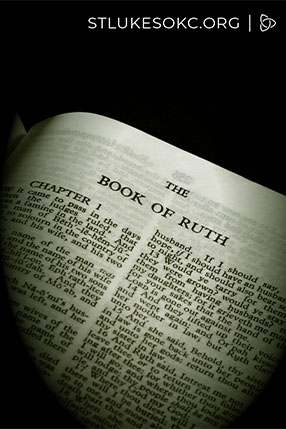The Biblical story of Ruth is a beautiful story of kindness and love. The book is named for Ruth, but it begins and ends with Naomi, a woman from Bethlehem. The story begins with Naomi and her small family traveling to Moab to escape famine in the land. While they are there, her two sons marry women from Moab. But then Naomi’s husband dies and shortly after, her two sons die as well. After this, Naomi decides that she will return home to Bethlehem and urges her daughters-in-law to remarry and begin their life again in Moab, which is their own home. But Ruth insists on going with her.
Naomi found herself making many changes in her life. She faced many hardships and had to make decisions based on the situations that happened beyond her control. Her family first left their home because of a famine. Then there was the loss of her husband and sons, and finally a decision to return home alone. Then, Ruth makes a sacrifice to offer her support to her and go with her. Both of these women had faced loss and grief, and the kindness of Ruth stepping forward to walk this journey with her mother-in-law is one that we admire. We might think this would be the sense of hope that Naomi might need in this time of deep loss. But when they arrive back to Bethlehem and the women of the town come to greet them, she responds by saying, “Don’t call me Naomi, but call me Mara, for the Almighty has made me very bitter. I went away full, but the Lord has returned me empty.”
Naomi has suffered and continues to find herself in a deep place of hurt and grief. Naomi didn’t desire for her life to have all the changes it did. We feel for Naomi and might even relate to her honesty for the feelings she has about all that she has lost. Sometimes we may also face such a time that we are just angry with our circumstances and a new way of life that we did not ask for. But as your life continues, and as we will see as this story continues, God is always with us. He never leaves us or abandons us, even when we may be angry and blame him for our bad luck, just as Naomi did.
Throughout the rest of the story, we will see how Ruth is able to acquire food for them and meets Boaz, a respected relative of their family. He was a man of worth and honor. Through the customs of those times, he loves and marries Ruth, as the kinsman redeemer. The book ends with Ruth giving birth to a son, named Obed, who was the father of Jesse and the grandfather of David. The final scene of the story is this baby boy in the arms of Naomi with the neighborhood women referring to the child as Naomi’s. This symbolizes how Naomi has gained something new, even when she lost so much. This story truly moves from emptiness to fullness and from death to life. And along the way, we can see how the kindness and support of others, and the faithfulness of God, helped Naomi as her emotions shift from bitterness and anger to fullness and joy. We may not be able to change the past, but with the help of God, we can move forward into the future and find strength and hope.
Amy Givens, Director of Youth Ministry



